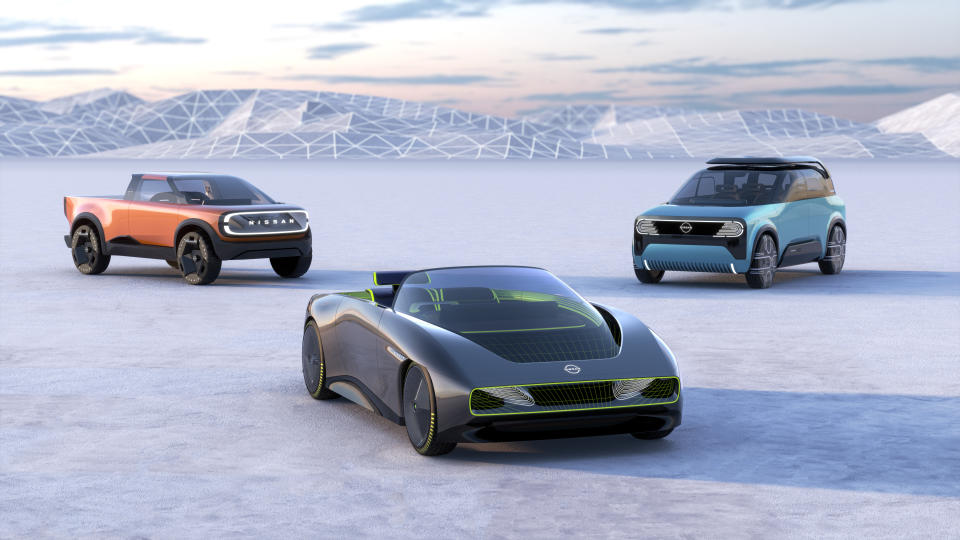Nissan accelerates electrification plans with 15 new EVs on the way
Nissan has revealed its new long-term vision for the future, which leans heavily on electrifying its vehicle line-up.
The Japanese car maker says it is investing 2 trillion yen (£13.2 billion) in ‘Nissan Ambition 2030’ to address environmental, societal and customer needs.
A key part of the plan is to introduce 23 new electrified models, which will include 15 fully electric vehicles with the rest made up of hybrid and plug-in hybrid models. Some of these vehicles have been previewed by a series of electric vehicle concepts, including a crossover, pick-up truck and sports car.
These models will be introduced by 2030, with the company also setting a target of 2050 to be carbon neutral across the life cycle of its products.

Twenty new electrified models are coming in the next five years, by which point the firm wants more than 75 per cent of its European sales to be electrified models.
Nissan CEO Makoto Uchida said: “The role of companies to address societal needs is increasingly heightened.
“With Nissan Ambition 2030, we will drive the new age of electrification, advance technologies to reduce carbon footprint and pursue new business opportunities. We want to transform Nissan to become a sustainable company that is truly needed by customers and society.”
Nissan has also revealed that it is working on evolving its battery technology so that it does not require cobalt, reducing the cost by 65 per cent by 2028. Battery cost is one of the key reasons EVs are more expensive than their combustion-engined counterparts.
Surf-Out, Max-Out, Hang-Out ⚡ 3 #Nissan concept electric vehicles.Would you rather go to a beach party with Surf-Out, on an exciting ride in the Max-Out, or relax in the Hang-Out?#NissanFutures #ElectrifyTheWorld #EV #ElectricVehicle pic.twitter.com/eAlstFIo8D
— Nissan (@Nissan) November 29, 2021
Keeping batteries sustainable is another area of focus, with the firm expanding its battery refurbishing operations. It hopes to commercialise its vehicle-to-everything communication technologyand home battery systems around 2025.
Nissan chief operating officer Ashwani Gupta said: “We are proud of our long track record of innovation, and of our role in delivering the EV revolution.
“With our new ambition, we continue to take the lead in accelerating the natural shift to EVs by creating customer pull through an attractive proposition by driving excitement, enabling adoption and creating a cleaner world.”

 Yahoo Finance
Yahoo Finance 